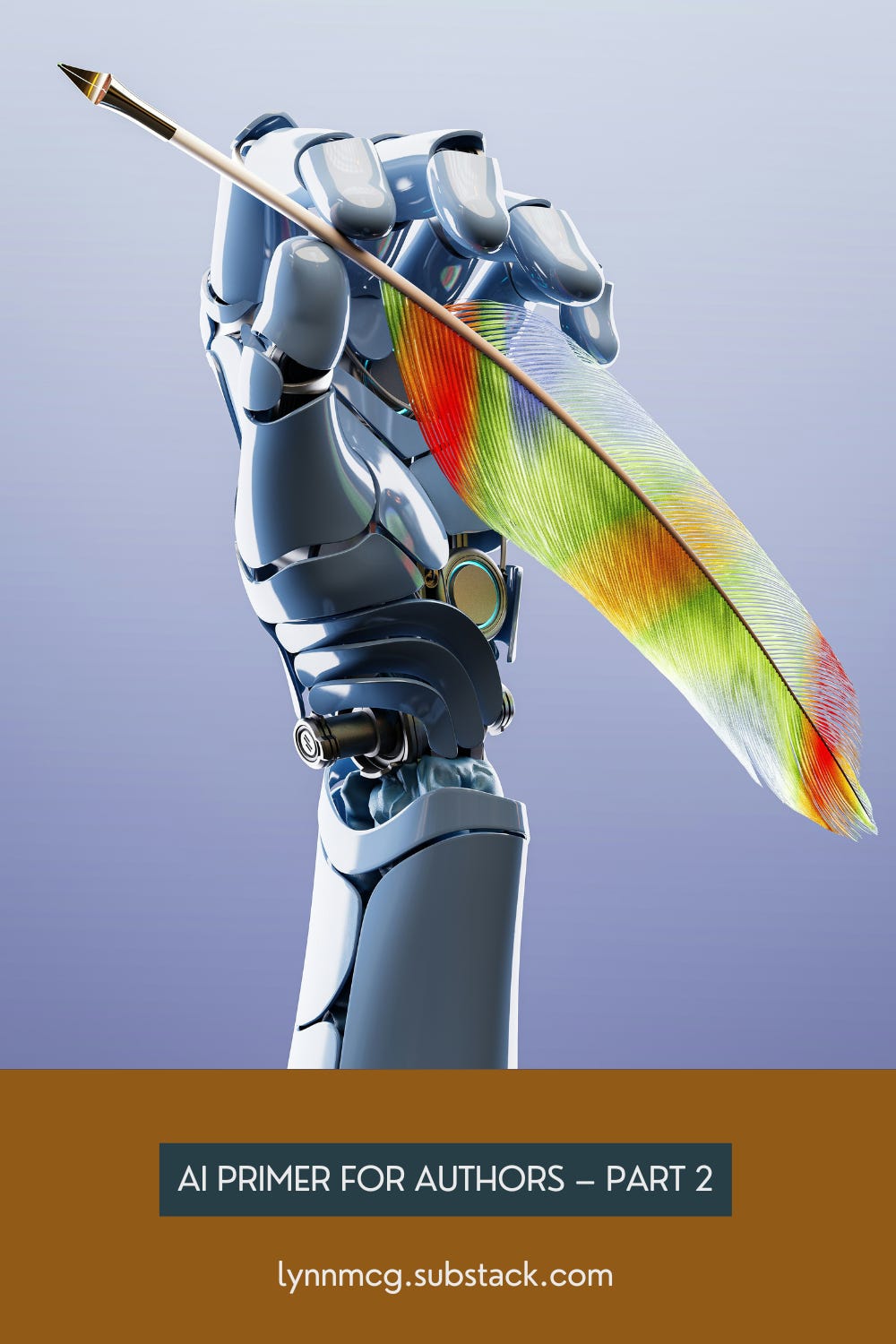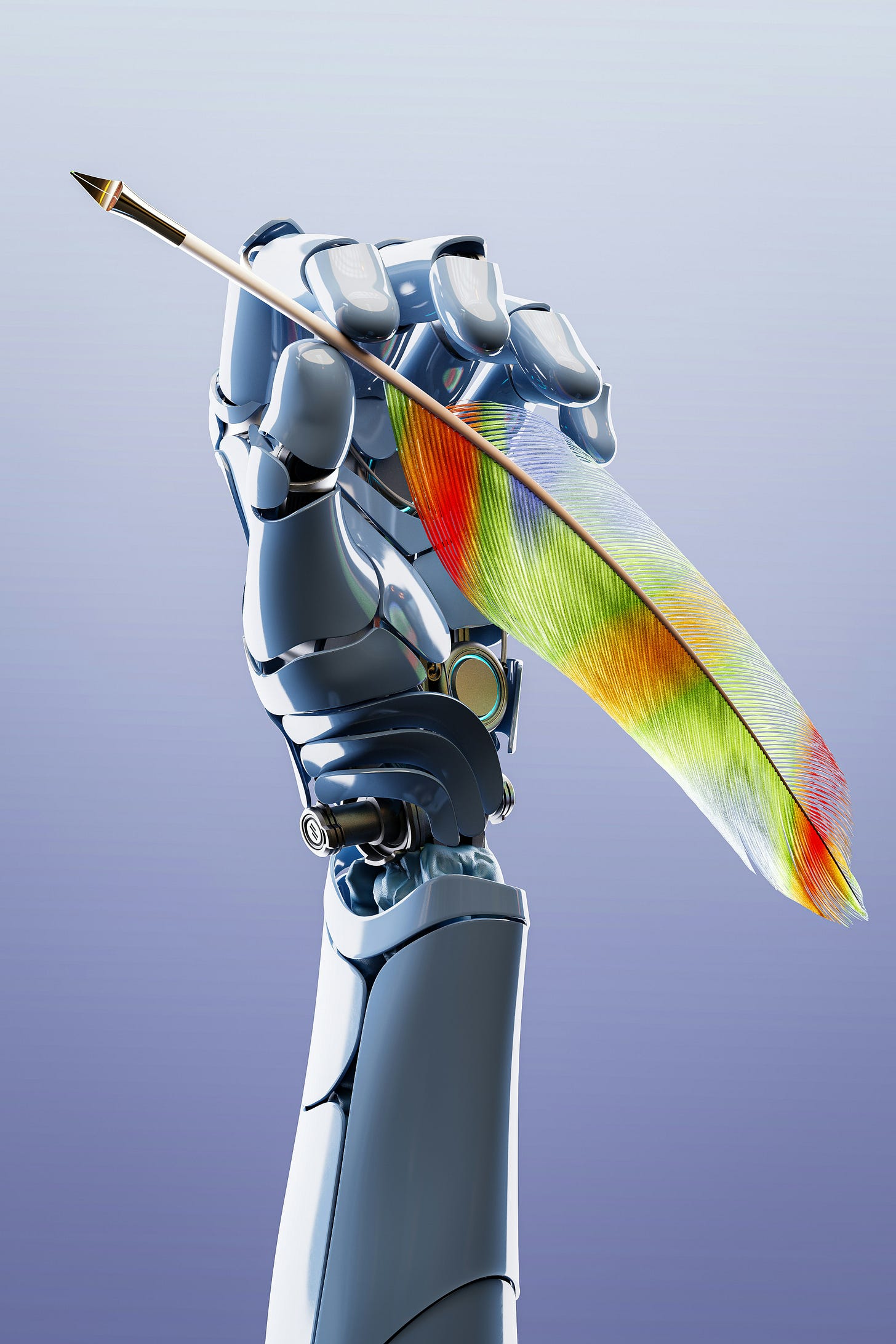Smart Writers, Smarter Tools (AI Primer for Authors – Part 3)
How Authors Feel About AI (Spoiler: It’s Complicated)
Authors are all over the map when it comes to AI. You’ve probably seen every camp represented.
There are the anti-AI writers. The “I will never be part of the machine” crowd. These folks have drawn a hard line, promising they won’t contribute to Skynet’s rise,not even if Grammarly tells them their semicolon placement is off. In some circles (especially on Substack), it can feel like the ultimate loyalty test is whether you used ChatGPT to brainstorm or em dash yourself into trouble. Writers are clutching their well-earned punctuation, assuring the world, “I’ve been using em dashes for decades, thank you very much.”
Then there’s tech. In that world, no one blinks. AI is a tool, like spellcheck or Slack. If it saves time, great. If it helps you write faster while managing ten other things, even better. The tool isn’t the point,efficiency is. And frankly, most authors could learn something from that mindset.
Somewhere in between, you’ll find the middle grounders. These are the writers who get that AI is helpful. They’re not evangelists, but they’re not hiding either. They might be using it to brainstorm a few titles or summarize research. They’re probably not using it to its full potential yet, but it’s becoming part of their process,quietly, daily, and more than they’d like to admit.
And finally, there are the full-on AI authors. They use AI to find market gaps, outline the book, draft it, edit it, format it, and even generate their marketing copy. These folks aren’t pretending to be artists in the traditional sense,they’re mechanics. Builders. Systems people. They know exactly what they’re doing, and they’re doing it at scale.
Not all of them are publishing good books, but many are publishing fast, often, and with measurable results. The spectrum is wide, and wherever you land, the real challenge isn’t how much AI you use—it’s why you’re using it. If you're not a full-on AI mechanic, and you're not clinging to your em dashes like a lifeboat, what can you use AI for as a writer?
That’s what we’ll dig into next.
Where AI Can Help Authors Write - Without Taking Over
Used wisely, AI can save time, spark ideas, and make the writing process less overwhelming. But it should never do the writing for you. Think of it as a collaborator, not a ghostwriter.
Nonfiction authors often turn to AI for help with the parts that happen before the writing begins: research, organization, and outlining. It can summarize long articles, compare perspectives across topics, or help you identify what’s missing from a crowded content niche. It’s not replacing your thinking, it’s helping you gather material so you can think more clearly.
Then there’s brainstorming. Fiction authors use AI to explore “what if” questions, build character traits, or test out alternate plot twists. It’s a prompt engine,not a plot generator. It can’t create an original world, but it can help you notice where yours needs more texture or tension.
Some writers use AI to organize scenes, summarize what they’ve already written, or create simple chapter overviews. These are tactical, helpful ways to stay focused without outsourcing their voice.
AI can also help with decision fatigue. When you’re overwhelmed by structure or unsure what to write next, it can offer a few options to get you moving. But those options should always be starting points,not substitutes for your imagination.
And here’s the test: if you hand a paragraph to AI and it improves clarity or flow, great. But if it changes the tone, the energy, or the intent,it’s doing too much.
The best uses of AI happen when the tool makes your work sharper,not flatter.
So no, you don’t need to resist AI entirely. And no, you don’t need to hand it the keys to your creativity either. You just need to know where it fits,and where it doesn’t. AI can support your writing process, but it shouldn’t define it.
In the next post, we’ll look beyond the writing and into the world of marketing,where AI tools are quietly changing how authors plan, post, and show up online. If writing is one side of the author coin, visibility is the other.
And yes, AI has something to say about that too.
If you’re ready to see what ethical, author-first AI can actually do to help you launch your book (not write it for you) I built a free tool to get you started.
Try the Book Launch Starter GPT here.
Lynn brings her more than 30-years experience in small business marketing, publishing, and multiple best-selling author campaigns to her Substack newsletter. She helps authors build and grow their platforms to reach their unique marketing goals through private coaching, non-fiction consulting, and done-for-you marketing programs. And all this, through her computer, in her little lake house in rural Pennsylvania which she shares with her husband, son, and two fluffy companions, Kaiju and Bella.















